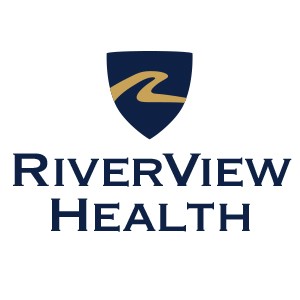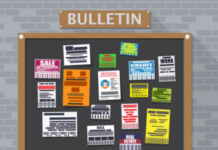Did you know you take about 23,000 breaths a day? If you are healthy, you may not think twice about breathing. However, breathing may be all you think about if every breath is a struggle.
October 22-28 is National Respiratory Care Week, a time to look at your lung health and ask for help if something is taking your breath away.
“Most people take breathing for granted,” shared Dallas Aune, Respiratory Care coordinator at RiverView Health. “It’s second nature, an involuntary reaction to our body’s need for air. However, it’s done with great effort for millions due to different respiratory diseases. RiverView and Respiratory Care Department is dedicated to helping ease the burden by educating and treating patients.”
RiverView and Respiratory Therapy (RT) Team comprises individuals from the Respiratory Care Department and Cardiopulmonary Rehab. Each team member plays a vital role in preventing, diagnosing, and treating lung disease. Respiratory therapists work with individuals of all ages, from newborns to elderly patients at end-of-life experiencing breathing and airway problems. These issues can include chronic lung conditions, such as asthma and emphysema, or infectious diseases, such as COVID-19.
As you breathe, the lungs filter out waste and move the ever-important oxygen into your bloodstream and all the cells in the body. Oxygen is your body’s fuel to maintain growth and repair cells. It would be best to have healthy lungs to keep your body working as it should. The lungs are the centerpiece of your respiratory system and are always hard at work. Your lung capacity declines as you age, making the oxygen exchange more difficult. Disease and lifestyle choices can also damage lung capacity. However, there are things you can do to keep your lungs healthy and even increase your power.
Some of the services by Riverview’s RT Team to test and improve lung function include
- Asthma education and testing
- Evaluations for home oxygen
- Methacholine challenge tests
- Pulmonary function tests
- Pulmonary Rehab post-COVID
- Respirator fit testing
- Sleep studies (home and in-lab)
- Stress tests (Lexiscan and treadmill)
- Tobacco cessation
- Nitric oxide testing
RiverView therapists are board-certified in Respiratory Care at the national level and licensed by the Minnesota Board of Medical Practice. They are also certified in subspecialties, including sleep medicine, pulmonary function testing, asthma education, and COPD (Chronic Obstructive Pulmonary Disease) education.
Due to the COVID-19 pandemic, the Respiratory Care Department and Cardiopulmonary Rehab have seen increased patient needs.
“We have had several patients that have come into Pulmonary Rehab for post-COVID symptoms, usually fatigue and shortness of breath,” said Wanda Sorum, coordinator of RiverView’s Cardiopulmonary Rehab, reported. “With the guided and monitored exercise in Pulmonary Rehab, they significantly improved their level of physical activity. Before Pulmonary Rehab, they were exhausted after several hours of work and had to rest or go home for the day. The post-COVID patients that have completed Pulmonary Rehab could return to a full day of work.”
While Sorum reports that some long-COVID patients (people with a wide range of ongoing health problems lasting weeks, months, or years) have benefitted from Pulmonary Rehab, she believes many people have resigned themselves to a reduced quality of life when Pulmonary Rehab or Respiratory Care could get them back the quality they have been missing. If you have breathing issues, talk to your primary care provider about services offered at RiverView or call Rehab Services at 281.9463 for more information.
Ten Simple Steps to Your Healthiest Lungs
- Stop Smoking (and avoid secondhand smoke). If you currently use tobacco products, quitting Smoking is the fastest way to improve lung health.
- Exercise regularly. Regular exercise doesn’t only make your lungs more robust, but it makes your heart stronger, too.
- Maintain a healthy diet and stay hydrated. Drinking water can help thin the mucus lining of your airways and lungs, making breathing easier.
- Get annual check-ups. Your healthcare provider should be the first to hear about any breathing troubles you may be experiencing.
- Stay up to date with vaccinations. Vaccines are essential for people with lung disease as they can help prevent serious illness.
- Avoid outdoor air pollution exposure. More than one in three Americans live in places with unhealthy outdoor air.
- Improve indoor air quality. Dusting regularly, changing air filters, and keeping your house smoke-free are just a few tips to improve indoor air.
- Practice deep breathing. Breathing exercises can improve the lungs’ strength and endurance.
- Maintain good hygiene. Washing your hands regularly, using hand sanitizer, staying socially distant, or wearing a mask can help you avoid contracting or spreading an infection.
- Get screened for lung cancer. Low-dose CT scans can reduce deaths in those at high risk.








